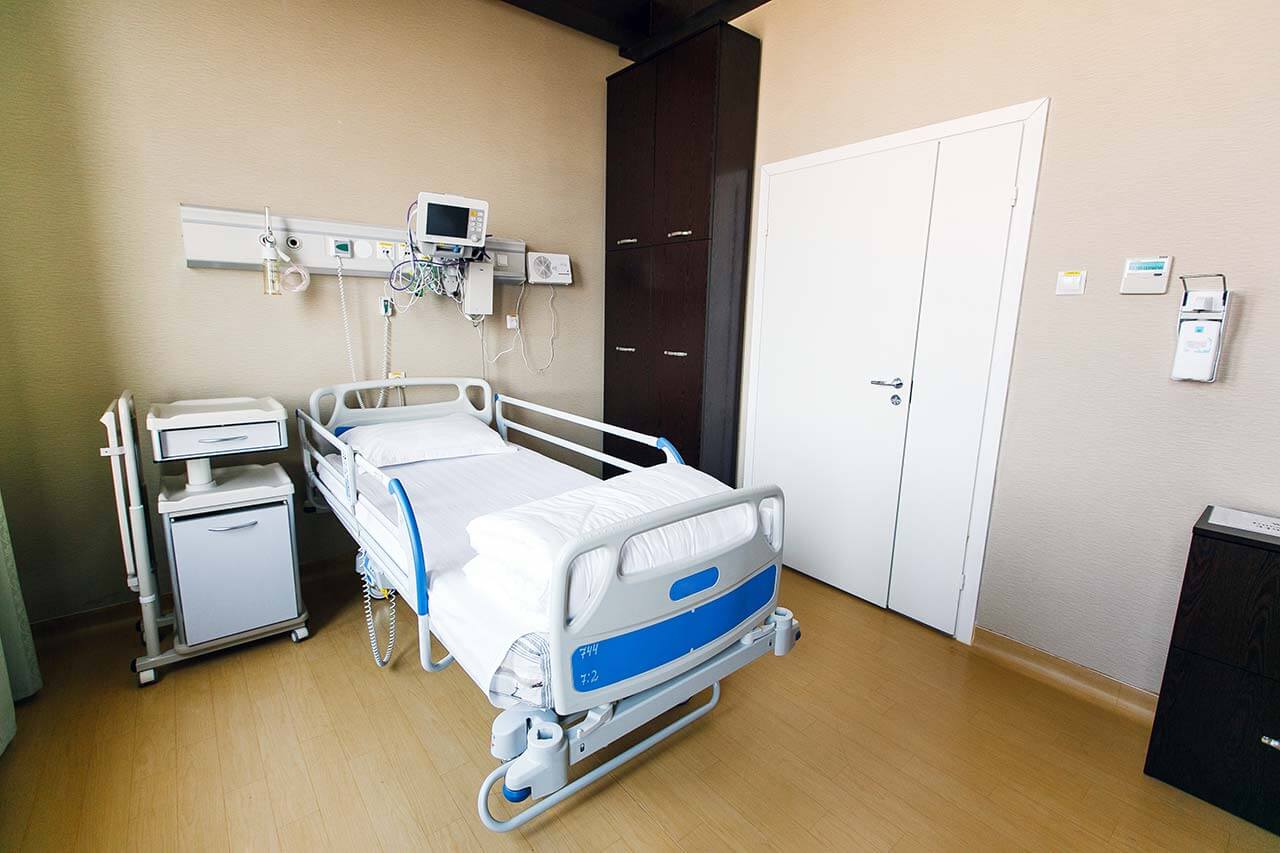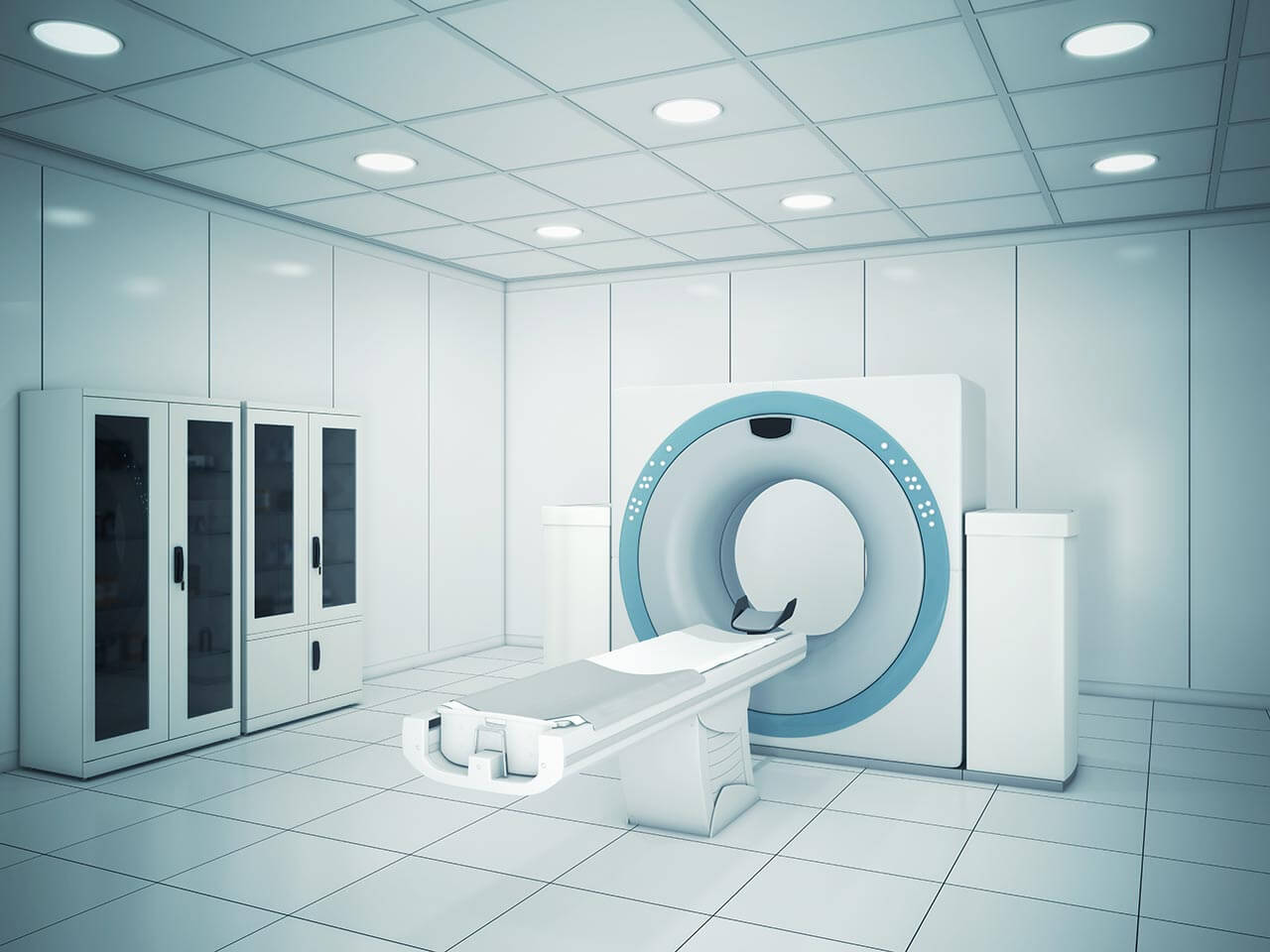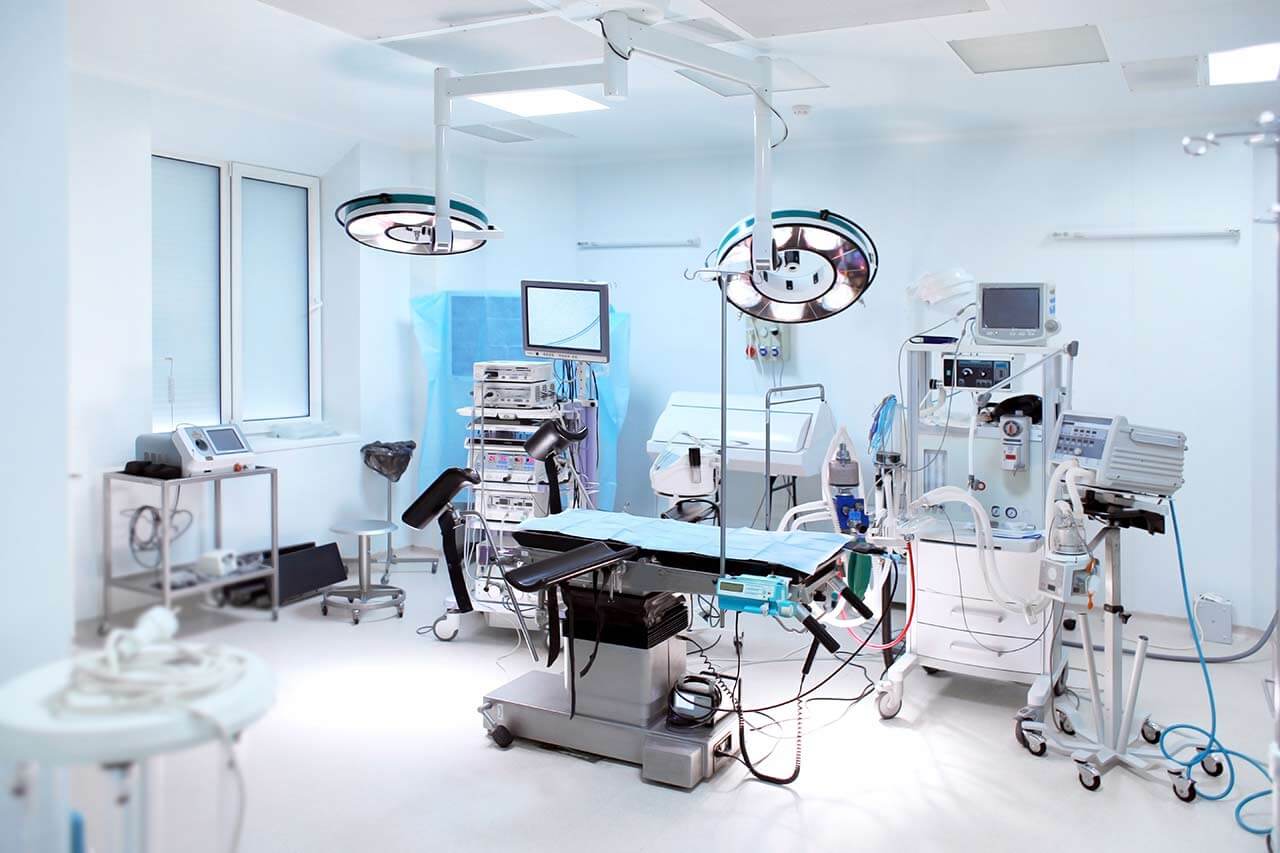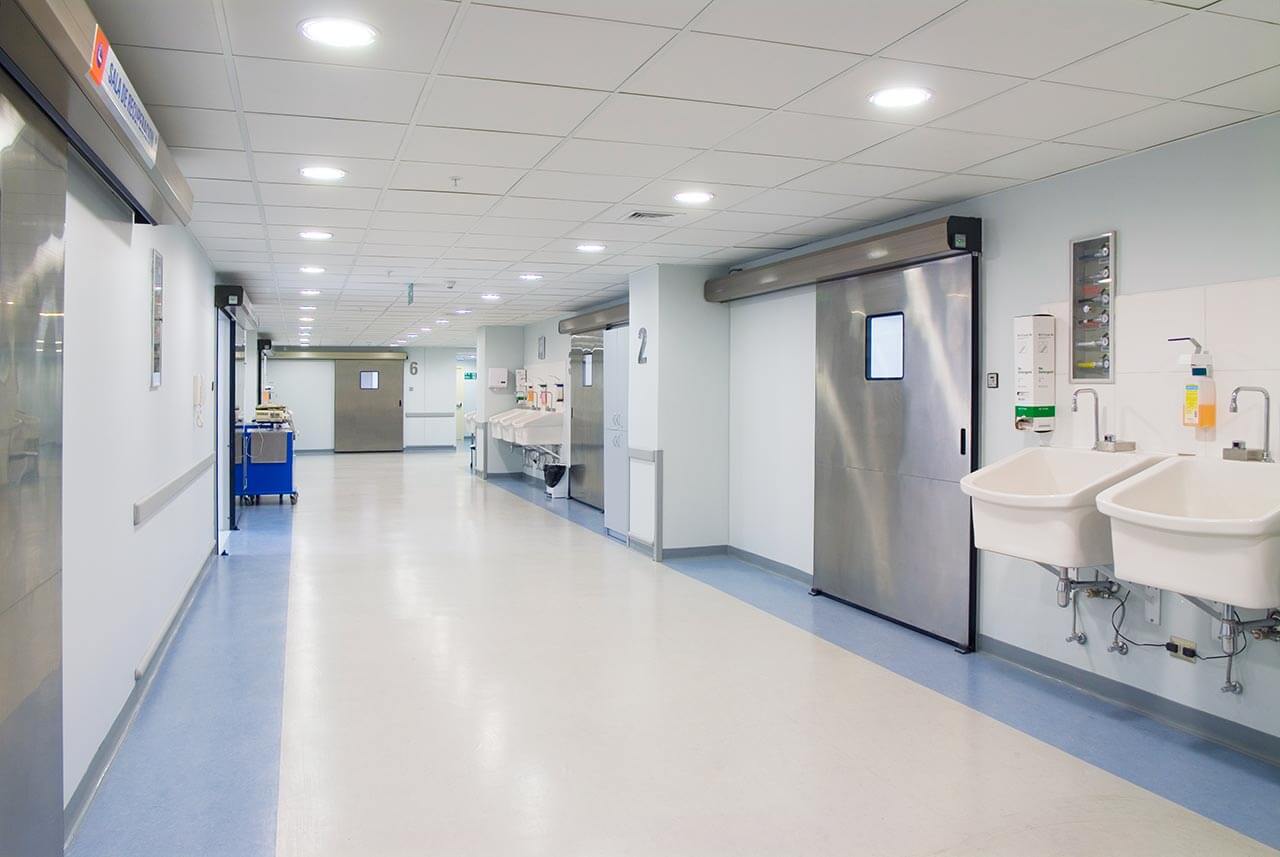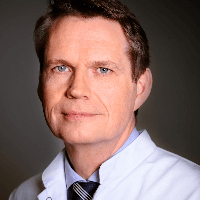
The program includes:
- Initial presentation in the clinic
- clinical history taking
- review of medical records
- physical examination
- laboratory tests:
- complete blood count
- biochemical analysis of blood
- inflammation indicators (CRP, ESR)
- indicators blood coagulation
- neurological examination
- CT/MRI scan
- neuropsychological tests (on indications)
- differential diagnosis with other neurological diseases
- consultation of related specialists
- symptomatic specific treatment
- the cost of essential medicines and materials
- nursing services
- control examinations
- full hospital accommodation
- developing of further guidance
Required documents
- Medical records
Service
You may also book:
 BookingHealth Price from:
BookingHealth Price from:
About the department
According to the famous Focus magazine, the Department of Neurology and Epileptology at the Alfried Krupp Hospital in Essen-Ruettenscheid ranks among the best German neurological clinics!
The department provides modern services for the prevention, diagnostics and treatment of diseases of the nervous system. The medical facility specializes in the conservative treatment of the full range of acute and chronic diseases of the brain and spinal cord, as well as of the peripheral nervous system. The department has an advanced Stroke Unit certified in accordance with the standards of the German Stroke Society (DSG). The treatment of neuromuscular diseases and multiple sclerosis is carried out in highly specialized centers. An important clinical focus of neurologists is epilepsy treatment. The team of the department's neurologists often admits patients with complex clinical cases, and therefore in order to successfully treat neurological disorders, doctors cooperate closely with neurosurgeons, neuroradiologists, vascular surgeons and other specialists. The patients receive medical care on an inpatient basis, and can also undergo outpatient treatment. The medical facility has 53 beds. The doctors are guided by current clinical protocols and recommendations of professional societies. The Head Physician of the department is Prof. Dr. med. Roland Veltkamp.
The department is often visited by patients with movement disorders, so the specialized outpatient clinic has been established here to provide medical care for such neurological disorders. At the initial consultation, the neurologis studies the patient's medical history and appoints the necessary set of diagnostic tests, which usually includes laboratory tests, electromyography and electroneurography. As a rule, the examination is carried out on an outpatient basis, and hospitalization is required only in particularly complex cases. The most common types of movement disorders treated by the department's specialists include Parkinson's disease, spasticity, focal dystonia (especially cervical dystonia), hemifacial spasm and blepharospasm. In most cases, the doctors of the medical facility treat movement disorders using injection therapy with botulinum toxin. The drug administration regimen is selected for each patient individually. The course is usually repeated at intervals of three months, until the desired result is achieved. In addition, botulinum toxin therapy often requires concomitant physiotherapy.
An important place in the department's clinical practice is also given to the treatment of multiple sclerosis, which is a chronic inflammatory process in the central nervous system. As of today, the pathology is incurable, but modern medicine offers various types of therapy for slowing down the progression of the pathological process and preventing disability. Patients with multiple sclerosis are admitted to a specialized outpatient clinic certified in accordance with the standards of the German Multiple Sclerosis Society (DMSG). The specialists of the outpatient clinic provide treatment to more than 2,300 patients annually. The course of the disease in each patient is different – most often periods of exacerbation are followed by periods of remission, while exacerbations can develop once every three months or once every three years, so the treatment regimen is developed based on the clinical data of a particular patient. To fight multiple sclerosis, the department's neurologists use new generation medicines, the administration of which is complemented by physiotherapy, occupational therapy, speech therapy and other types of treatment.
The department also has an outpatient clinic specializing in the diagnostics and treatment of amyotrophic lateral sclerosis. It admits patients with a confirmed diagnosis and suspected amyotrophic lateral sclerosis. In addition, the outpatient clinic can also provide medical care for patients with other motor neuron diseases: hereditary spastic paraplegia, spinal muscular atrophy, etc. Amyotrophic lateral sclerosis (ALS) causes the death of brain and spinal cord cells responsible for muscle movement. The pathological process results in muscle weakness and paralysis. Unfortunately, today there are no methods that can completely cure ALS, so the task of doctors is to slow down the progression of pathology, alleviate symptoms and maintain a high quality of life for the patient. The treatment involves the use of pharmacotherapy, physiotherapy procedures, occupational therapy, speech therapy and other methods. The methods of alternative medicine are sometimes recommended to patients as well.
An important area of work of the department's medical team is the treatment of polyneuropathies. The physicians have vast clinical experience in the treatment of Guillain-Barré syndrome, chronic inflammatory demyelinating polyneuropathy, multifocal motor neuropathy, and small fiber neuropathy. In most cases, the treatment of polyneuropathies is based on the use of pathogenetic pharmacotherapy.
Of particular interest to the department's doctors is the diagnostics and treatment of epilepsy – a chronic neurological disorder characterized by recurrent seizures. With confirmed epilepsy, the first-line therapy is the intake of anticonvulsants (antiepileptic drugs) Depending on the particular type of epilepsy and the patient's overall health condition, an epileptologist individually selects one drug or a combination of several drugs. If pharmacotherapy is ineffective, the department's specialists together with neurosurgeons consider other treatment options, namely electrical vagus nerve stimulation, deep brain stimulation or surgery.
The department's range of medical services includes:
- Diagnostics and treatment of stroke, including in young people under the age of 45
- Diagnostics and treatment of movement disorders
- Parkinson's disease
- Spasticity
- Focal dystonia (in particular, cervical dystonia)
- Hemifacial spasm
- Blepharospasm
- Diagnostics and treatment of multiple sclerosis
- Diagnostics and treatment of amyotrophic lateral sclerosis, hereditary spastic paraplegia and spinal muscular atrophy
- Diagnostics and treatment of polyneuropathies
- Diagnostics and treatment of epilepsy
- Diagnostics and treatment of autonomic nervous system disorders (for example, dizziness and syncopes)
- Diagnostics and treatment of Alzheimer's disease and other types of dementia
- Diagnostics and treatment of chronic headaches and chronic spinal pain
- Diagnostics and treatment of moyamoya disease and cerebral vasculitis
- Diagnostics and treatment of neuroimmunological diseases
- Autoimmune encephalitis
- Susac syndrome
- Neuromyelitis optica
- Diagnostics and treatment of other neurological disorders
The department's therapeutic options include:
- Pharmacotherapy with pills
- Botulinum toxin injection therapy
- Thrombolytic therapy
- Immunoglobulin therapy
- Transcranial magnetic stimulation
- Transcutaneous electrical nerve stimulation
- Monoclonal antibody therapy
- Plasmapheresis
- Therapeutic lumbar puncture
- Multimodal pain management
- Physiotherapy
- Therapeutic exercises
- Kinesiotherapy
- Acupuncture
- Massage
- Other treatment methods
Curriculum vitae
Prof. Dr. med. Roland Veltkamp is the Head of the Department of Neurology and Epileptology at the Alfried Krupp Hospital in Essen-Ruettenscheid. Prior to that, the specialist worked in the Stroke Unit at the Imperial College Health Centre, England. Prof. Veltkamp underwent clinical training at the University Hospital Heidelberg, Wake Forest University and Imperial College London. The doctor has over 25 years of successful experience in the diagnostics and treatment of neurological disorders.
The primary focus of the doctor's clinical practice is the prevention, diagnostics and treatment of stroke. Of particular interest is the treatment of degenerative and inflammatory diseases of the nervous system, as well as neuromuscular diseases. Prof. Roland Veltkamp is also active in research activities and is one of the leading international experts in several areas of clinical studies for stroke. It is worth noting that the doctor is in charge of an extensive study on the treatment of acute stroke with anticoagulants (RASUNOA-prime).
Dr. Veltkamp is a Board Member of the European Stroke Organisation (ESO), a member of the German Society for Neurocritical Care and Emergency Medicine (DGNI) and a Member of the Program Committee of the International Stroke Conference of the American Heart Association (AHA).
Photo of the doctor: (c) Alfried Krupp Krankenhaus
About hospital
The Alfried Krupp Hospital in Essen-Ruettenscheid began its work back in 1870, and large-scale restoration took place here in 1980. The medical facility is an academic hospital of the University of Duisburg-Essen, thanks to which it has access to innovations in the medical field, and also makes its own contribution to the development of modern therapeutic techniques. The hospital has 13 departments and various highly specialized centers, including the Breast Center, Endoprosthetics Center, Lung Cancer Center, Trauma Center and others. The hospital has 575 beds for patient hospitalization. The hospital also offers outpatient medical care. Every year, the hospital's team of doctors admits over 80,000 patients for diagnostics and treatment. For many years, the medical facility has held a leading position in the German medical arena, and is also widely known for its high quality standards in many other countries of the world. The hospital can be proud of its successful experience in providing medical care to foreign patients.
The priority fields of the hospital's work include the treatment of oncological, hematological, gastroenterological, gynecological, urological, neurological, orthopedic and other diseases. The high quality standards of medical care are facilitated by the constant updating of medical equipment and advanced training courses for medical personnel. The hospital widely applies modern methods of conservative treatment, progressive laparoscopic surgical techniques, as well as innovative robotic surgery using the da Vinci Xi system.
The medical facility has been awarded numerous quality certificates confirming the outstanding clinical work of its specialists. These include, in particular, a certificate of the German Society for General and Visceral Surgery (DGAV) in the field of bariatric surgery, colorectal surgery, pancreatic surgery and minimally invasive surgery, an endoCert certificate in the field of joint replacement surgery, a certificate of the German Cardiac Society (DGK) in the field of emergency cardiac care, a certificate of the German Cancer Society (DKG) in the treatment of prostate and lung cancer, a certificate of the German Stroke Society, a certificate of the German Society of Phlebology and others.
Special attention should be paid to the exceptional professionalism of the doctors working at the hospital, who apply all their rich experience and deep knowledge to restore the health of patients. The specialists use an individual approach in their work and carefully think over each treatment regimen so that the patient gets the maximum result, but at the same time the course of therapy is as sparing as possible. The hospital's team of doctors keeps pace with the very latest medical advances and actively implements them into clinical practice for the benefit of patients.
Photo: (с) depositphotos
Accommodation in hospital
Patients rooms
The patients of the Alfried Krupp Hospital in Essen-Ruettenscheid live in comfortable single and double rooms with light colors. For maximum convenience, each patient room has an ensuite bathroom with shower and toilet. The patient room includes a comfortable automatically adjustable bed with an orthopedic mattress, a bedside table, a wardrobe, a table and chairs, as well as a TV and a telephone. Wi-Fi is available upon request.
The hospital also offers enhanced-comfort rooms corresponding to the level of an upscale hotel room. Such patient rooms additionally include upholstered furniture, a safe, a minifridge, and an air conditioner. Daily fresh newspapers, seasonal fruits, coffee and tea are offered to the patient in the room (upon request).
Meals and Menus
The patients of the hospital are offered delicious meals three times a day. Breakfast and dinner are served buffet style with a wide selection of cheese, cold meats, vegetables, fruits, pastries, etc. For lunch, there is a choice of several set menus. The patients living in an enhanced-comfort room benefit from a separate menu for breakfast, lunch and dinner with a large assortment of delicious dishes.
Further details
Standard rooms include:
Religion
The services of representatives of religions are available upon request.
Accompanying person
During an inpatient program, an accompanying person can stay with you in the patient room or in a hotel of your choice.
Hotel
During an outpatient program, you can stay in a hotel of your choice. The managers will help you choose the most suitable options.
